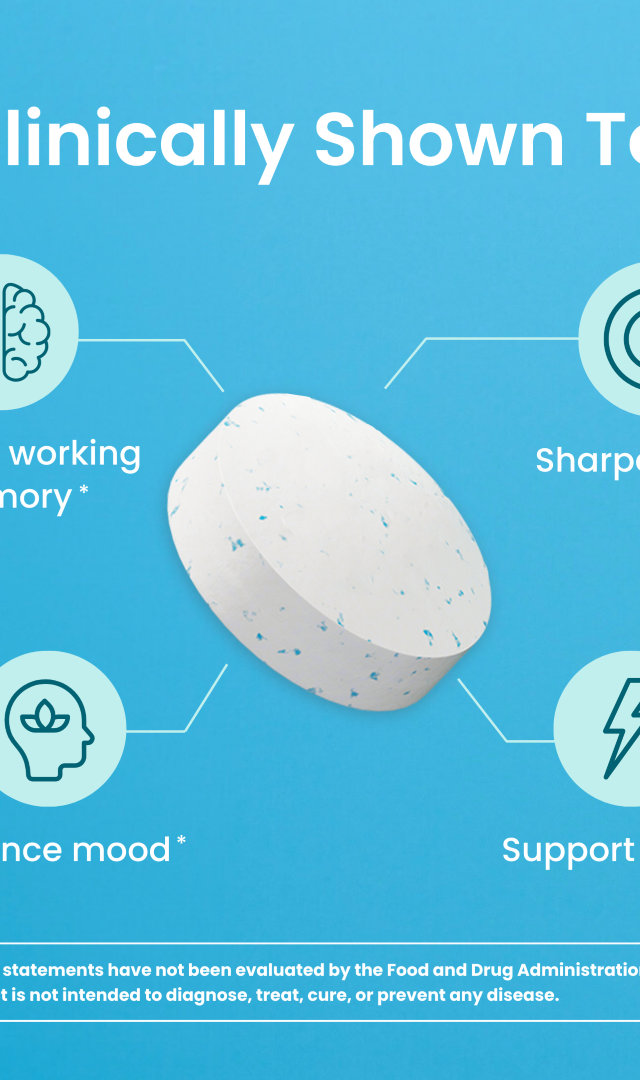While it’s one of the essential requirements for normal day-to-day functioning, concentration always seems to be in short supply. We get up in the morning and struggle through our assignments and projects, only to reach the evening and unable to wrap our minds around a movie’s plot.
Problems of this sort plague everyone; some have it better, others have it worse. But the ability to change and improve the situation is common to us all.
The good news is that mental endurance, like its physical counterpart, can be increased through dedicated practice and effort. There are many ways to go about, so make sure you choose the one that fits you best. Here are our favorite tips and tricks to boost concentration power.
Make a Schedule
The main goal here is to create a sense of structure and hierarchy. Set aside some quiet time in the evening and plan out your next day. Do the planned things, cross them off the list, and repeat. When you get in the rhythm, step up your game with some weekly and monthly goals.
To make a good schedule, you will need to decide what are your goals and priorities. To make it effective, you’ll need to stick to your guns and deliver. Now, while having a schedule is great, be careful not to swamp yourself. Try different approaches and see what works for you.
If you’re starting out, give yourself some time to adapt. Once you get comfortable, try the next tip on our menu.
Time Blocking
This technique adds precision to the concept of a schedule: it adds “when” to “what”. Essentially, you will assign time blocks, or fixed periods of time, to certain activities. These blocks can be as big or as small as you want them to be, anywhere from a couple of minutes to a couple of hours.
Some of the most common time blocking regimens employ thirty to sixty-minute blocks. Working with periods shorter than thirty minutes can be taxing. It might over-compartmentalize your day and cause more damage than benefit.
It is important to minimize distractions when you get down to the task. Turn off your phone or put it on airplane mode, turn off your browser (unless you actually need it), as well as the TV. Also, try to avoid multitasking, as it will most probably only create more distractions.
The goal here is to make maximum use of allocated time. Try finding a block size which is challenging, but not overwhelming. Make sure to allow yourself enough rest and breaks to avoid burnout.
Exercise
Physical activity is of the utmost importance to our well-being and health. It stimulates our bodies, strengthens our muscles, and increases our physical endurance. It also builds our resilience to disease and slows down aging. Physical exercise is also very beneficial for the brain. It reduces stress, improves memory, strengthens concentration, and boosts mood.
The benefits of physical exercise on cognitive skills have been researched and documented in countless studies. We will only mention two recent researches – a 2013 Granada University Study which directly linked regular physical exercise to improved concentration and cognitive abilities, and a 2008 study which claims regular physical exercise has positive effects on brain development in children.
To balance your physical and mental sides, you might give our next tip a try.
Meditate
Meditation is one of the oldest known methods for relieving stress and reaching peace. Up until the mid-twentieth century, it enjoyed a somewhat poor reputation in the west, mostly for religious connotations.
A recent study showed that regular meditation, even only for a short period of time, had a positive effect on concentration. Many of the test subjects performed better on awareness and concentration tests while also reporting lower stress levels and fewer and milder bouts of depression.
Meditation does not require any gear and you don’t have to pay a monthly membership fee. There’s no coach and no diet, though we’ll get to food later. All you need is a quiet place and fifteen-to-twenty minutes. Sit down, relax your shoulders, and detach from unwanted and unpleasant thoughts. After you’re done, you might treat yourself to a hot cup of tea.
Drink Tea
If you’d like to step up your game and increase your concentration power even more, we suggest you swap out your soda for tea. There are many types to choose from, though green tea would be your best pick for this task. So, what does green tea bring to the table?
Green tea is rich in caffeine and L-theanine, among other healthy substances. We know caffeine and how it works, thanks to coffee. The thing with tea is that it contains less caffeine, which changes the way it affects you. Instead of a short and intense rush, you’ll experience a milder buzz which lasts longer.
Behind the scenes, caffeine blocks adenosine, an inhibitory neurotransmitter. This would, in turn, boost neural activity and your levels of dopamine and norepinephrine. L-theanine kickstarts the GABA inhibitory neurotransmitter and helps decrease your anxiety. A study found that these two substances complemented each other very well.
Put Some Mozart On
Effects of classical music on cognitive abilities are more than well documented, with studies centered on Mozart’s music being the most popular. An overwhelming majority found that listening to classical music actually improved cognitive abilities and concentration power.
The science behind this is grounded on the effects that certain notes, steady tempos, repetition, and harmonized melodies have on our brains. A study conducted at the University of London showed that well-harmonized patterns, played at a moderate tempo, affected concentration in children in a positive way.
Even if you haven’t listened to classical music before, don’t worry. It is never too late to discover Bach’s Brandenburg Concerts, Beethoven’s 9th Symphony, or Vivaldi’s Four Seasons. Take your pick and strengthen your brain while enjoying some quality music.
Eat, Sleep, and Stay Hydrated
Adequate sleep, healthy food, and proper hydration are important to all areas of life. Just take a look at people around you when they’re hungry, thirsty or tired, and you’ll see they can’t concentrate well. They even have troubles with performing simple tasks.
Food and water are the basic fuels the human body burns throughout the day. When they’re deficient, the brain starts cutting supplies to non-essential processes and functions. This means concentration is among the first things to go.
During sleep, the body rests and the brain undergoes maintenance. It is similar in purpose to racing pit-stops, only much longer in duration. How much sleep do we need to function properly? It depends on each individual and their health, age, sex, but here’s a handy table for guidance.
Conclusion
These are some of our favorite tips and techniques to boost concentration. If you’re having trouble focusing on the task at hand, pick one technique and give it a go. It might take some time, but it’s all good. Once you’ve got a hang of it, throw another one into the mix and boost your concentration power even more.





















